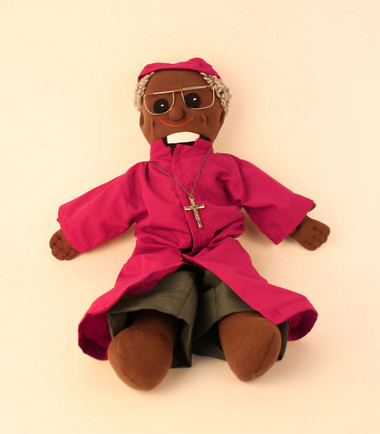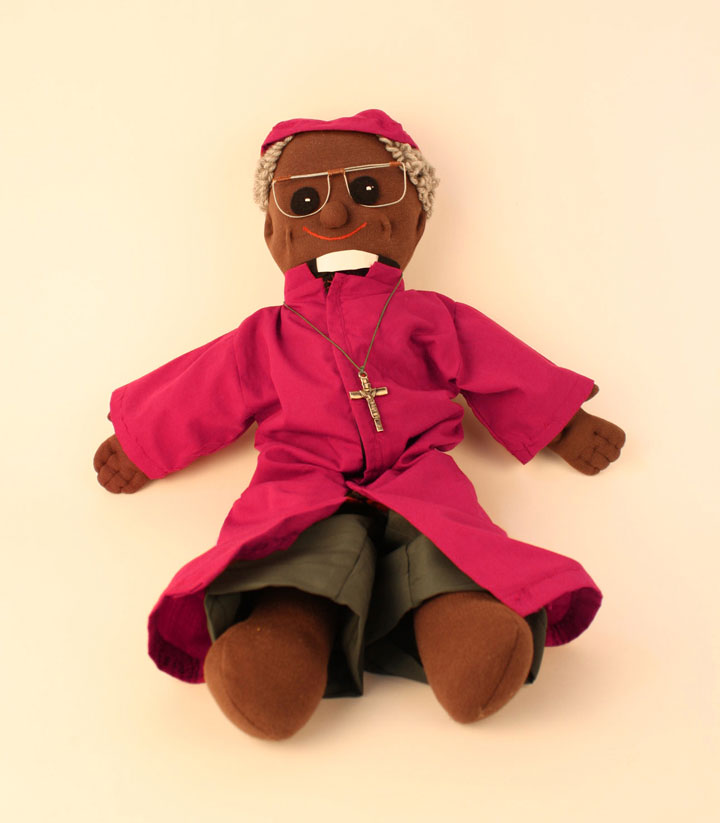Archbishop Desmond Tutu, Doll, South Africa
This doll with the distinctive smile, curly grey hair and wire rimmed glasses is immediately recognizable as The Very Reverend Desmond Tutu, Archbishop Emeritus of Cape Town. The doll wears traditional bishop's vestments - a maroon cotton robe over trousers, shirt with a dog collar. If you were to be so disrespectful as to pull down his trousers you would see some very elegant Calvin Klein style orange underpants!
Nobel Prize winner Desmond Tutu was a leading figure in South Africa during the struggle against apartheid, and he headed the Truth and Reconciliation Commission post-apartheid. He remains a human rights activist. When asked for permission to make the doll in his image, he laughed and said with his usual humour that he gave permission but doubted anyone would want to buy him.
The doll is made by a women’s group in Khayelitsha, on the Cape Flats just outside the city of Cape Town. The population there is very young and mainly Xhosa (Khayelitsha means ‘new home’ in the Xhosa language). This doll is a fairtrade product purchased from Exclusive Roots, a UK charity working with poor communities in many African countries.

Length:45cm

Length:45cm

This doll with the distinctive smile, curly grey hair and wire rimmed glasses is immediately recognizable as The Very Reverend Desmond Tutu, Archbishop Emeritus of Cape Town. The doll wears traditional bishop's vestments - a maroon cotton robe over trousers, shirt with a dog collar. If you were to be so disrespectful as to pull down his trousers you would see some very elegant Calvin Klein style orange underpants!
Nobel Prize winner Desmond Tutu was a leading figure in South Africa during the struggle against apartheid, and he headed the Truth and Reconciliation Commission post-apartheid. He remains a human rights activist. When asked for permission to make the doll in his image, he laughed and said with his usual humour that he gave permission but doubted anyone would want to buy him.
The doll is made by a women’s group in Khayelitsha, on the Cape Flats just outside the city of Cape Town. The population there is very young and mainly Xhosa (Khayelitsha means ‘new home’ in the Xhosa language). This doll is a fairtrade product purchased from Exclusive Roots, a UK charity working with poor communities in many African countries.
- Term:
- Description:
- Xhosa
One of the major South African nations. Nearly 7 million South Africans are Xhosa and speak isiXhosa, one of South Africa’s 11 official languages.




















